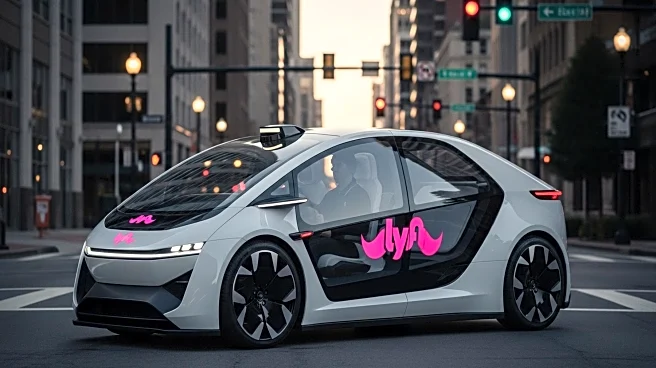What's Happening?
Lyft has initiated a pilot program for autonomous rides in Atlanta, featuring Toyota Sienna minivans equipped with May Mobility's technology. The service includes a safety driver and operates during weekday rush hours and some weekend evenings. This launch is part of Lyft's strategy to compete with Uber and Waymo, who already offer driverless rides in various cities. The pilot covers a seven-square mile area in Midtown Atlanta, with plans to expand the fleet and service hours based on demand. Human operators will be present to assist riders and gather data during the initial phase.
Why It's Important?
Lyft's entry into the autonomous vehicle market in Atlanta represents a significant step in its efforts to compete with established players like Uber and Waymo. By offering autonomous rides, Lyft aims to enhance its service offerings and attract more customers. The presence of safety drivers highlights the current limitations of fully autonomous technology, emphasizing the need for further development and data collection. This initiative could lead to increased rideshare usage and influence the future of urban transportation, potentially reshaping the industry landscape.
What's Next?
Lyft plans to expand its autonomous ride service to additional U.S. markets, leveraging partnerships with companies like Mobileye and Benteler Group. The company is also exploring international opportunities, including a deal with Baidu for driverless rides in Europe. As Lyft gathers more data from the Atlanta pilot, it may adjust its routing technology to optimize service areas and improve efficiency. The transition to fully driverless operations will depend on technological advancements and customer readiness.










